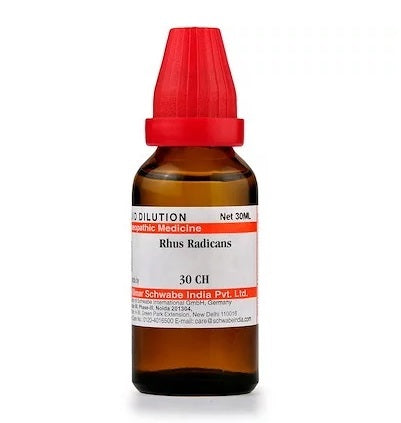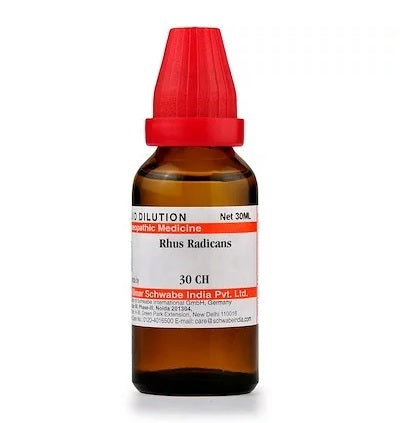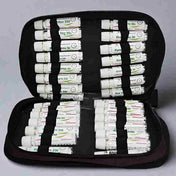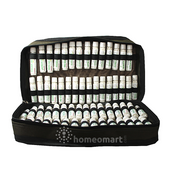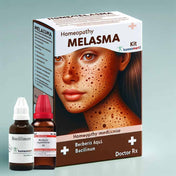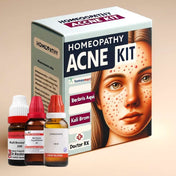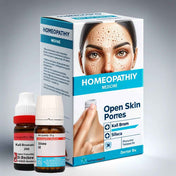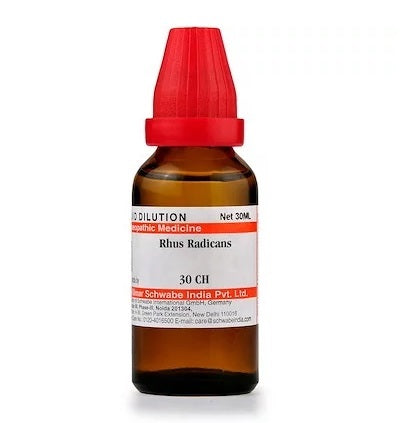Rhus Radicans Homeopathy Dilution 6C, 30C, 200C, 1M, 10M
Rhus Radicans Homeopathy Dilution 6C, 30C, 200C, 1M, 10M - Schwabe / 30 ML 30C is backordered and will ship as soon as it is back in stock.
Couldn't load pickup availability
Description
Description
Rhus radicans is a homeopathic remedy derived from the poison ivy plant, which is also known as Toxicodendron radicans. Homeopathic medicines are prepared through a process of serial dilution and succussion (vigorous shaking) that renders them safe and non-toxic, even when the original substance is poisonous. Rhus radicans is a close relative of Rhus toxicodendron, another homeopathic remedy derived from poison ivy.
Common Names:
- Rhus radicans is commonly known as Poison Ivy in botanical terms.
- In homeopathy, it is referred to as Rhus radicans or simply Rhus rad.
Rhus Radicans Clinical Indications and Health Benefits:
In homeopathy, Rhus radicans is primarily used for conditions that involve symptoms resembling poison ivy poisoning. Some of the clinical indications and health benefits associated with Rhus radicans in homeopathy include:
- Skin Conditions: Rhus radicans is often used to treat skin conditions with symptoms like itching, burning, redness, and blistering. It may be indicated for conditions such as dermatitis, eczema, hives, and other allergic skin reactions.
- Joint and Muscle Pain: It is also used for conditions where there are symptoms of stiffness, soreness, and pain in the muscles and joints. This remedy is especially useful when these symptoms improve with movement and worsen with rest.
- Restlessness: Rhus radicans is known to address restlessness and a constant need to move around, both physically and mentally. Individuals who benefit from this remedy may experience restlessness due to discomfort or anxiety.
- Aggravation from Cold and Dampness: People who require Rhus radicans often experience worsening of symptoms in cold and damp weather. They may feel better with warmth and gentle motion.
- Rheumatism and Arthritis: It is sometimes used for individuals with rheumatic or arthritic pains, particularly when these pains are aggravated by damp conditions and relieved by gentle movement.
- Strains and Sprains: Rhus radicans can be considered for muscle strains and ligament sprains that result in pain, stiffness, and restlessness.
In homeopathy, materia medica provides detailed information about specific remedies, including their characteristic symptoms and indications for use. Here's a summary of the materia medica information for Rhus radicans:
Materia Medica Information
Homeopathic Name: Rhus radicans (Rhus rad.)
Key Characteristics and Symptoms:
- Skin Symptoms: Rhus radicans is known for its skin symptoms, including itching, burning, and blistering. The skin may be red and swollen, resembling the effects of poison ivy exposure.
- Aggravation from Rest: Individuals requiring Rhus radicans often experience aggravated symptoms when at rest, with stiffness and pain, and relief from gentle movement.
- Restlessness: There is a sense of restlessness and an inability to stay still. Restlessness can manifest physically and mentally.
- Worsening in Cold and Damp Weather: Symptoms tend to worsen in cold, damp conditions, making warmth and gentle motion soothing.
- Joint and Muscle Pain: Rhus radicans is indicated for joint and muscle pains that are relieved by motion. The pains may be tearing, stitching, or sore in nature.
- Improved Flexibility: People who benefit from Rhus radicans often experience increased flexibility and relief from stiffness after moving around.
- Rheumatism and Arthritis: This remedy is considered for rheumatic and arthritic complaints, especially when the discomfort is linked to dampness and relieved by mobility.
- Injuries: Rhus radicans is useful for injuries such as strains and sprains, particularly if there is swelling, bruising, and a feeling of soreness.
Side Effects:
Since Rhus radicans is derived from poison ivy, there may be concerns about potential side effects or allergic reactions. However, in homeopathy, the remedy is so highly diluted that it does not contain a significant amount of the toxic substance, and therefore, side effects associated with poison ivy exposure are not a concern when using the homeopathic remedy.
It's important to consult with a qualified homeopathic practitioner for proper assessment and guidance on using Rhus radicans or any other homeopathic remedy. Homeopathic treatment is individualized, and the selection of a remedy depends on the specific symptoms and constitution of the person seeking treatment.

